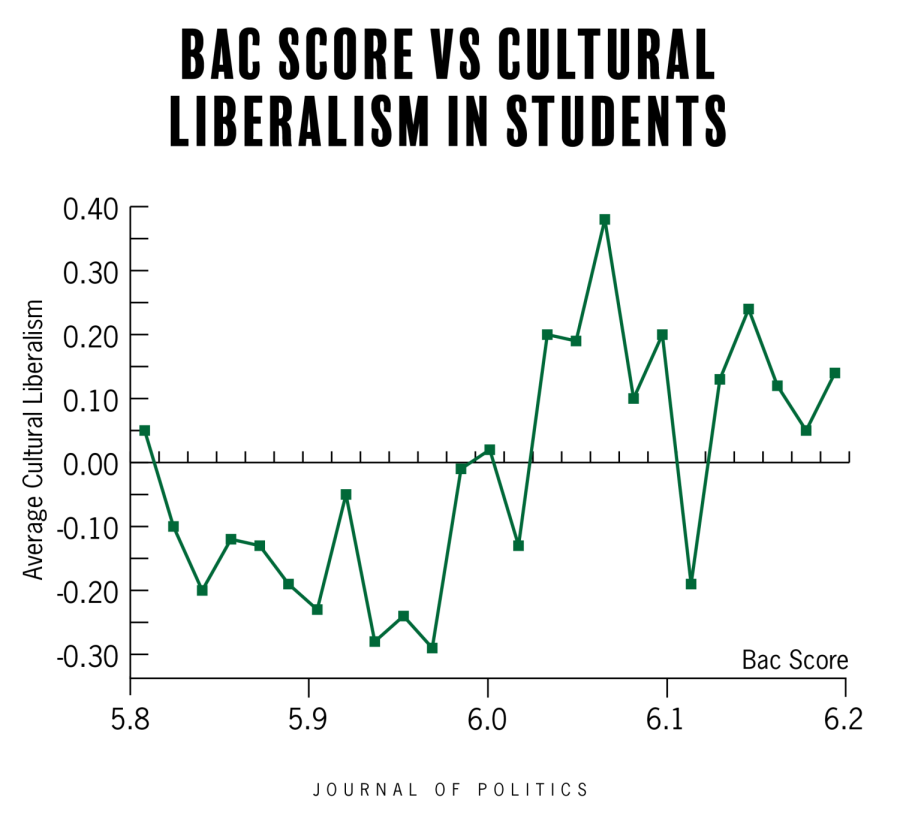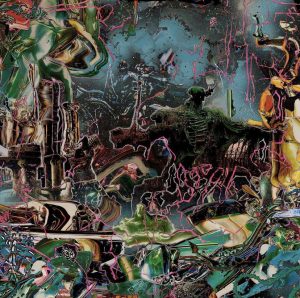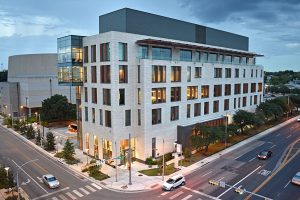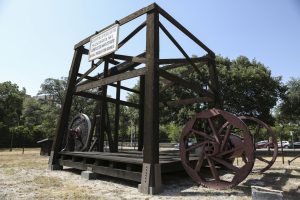Your wacky uncle may be right — college makes people more ‘culturally’ liberal, according to UT researchers
July 28, 2022
The myth that has been spouted by family members at holiday dinners for generations — that college makes students more liberal — may actually be true, according to a study led by UT researchers that found attending university makes students more culturally liberal. However, a college education can also make students more fiscally conservative or more religious.
The researchers conducted the study using a subject pool in Romania, a country where performance on a standardized baccalaureate exam largely determines university acceptance. Co-researcher Stephen Jessee said performing the study in Romania allowed them to control for external factors because the exam almost guarantees college attendance or non-attendance, and the test pools of people who do or do not go to college are very similar. This differs from the United States, co-researcher John Gerring said, because in the U.S., many factors influence whether a person can or wants to attend university.
“It’s often pretty difficult to tease out exactly what the effect of education is, because the type of people who are highly educated are different in many other ways,” associate government professor Jessee said. “So what we do is we look at people who either barely passed or barely failed this exam. Presumably, those people are pretty similar on average because it could be as simple as getting one or two extra questions right.”
The researchers surveyed people who narrowly passed or failed the exam and asked them their attitudes about different cultural issues. Researchers sent a survey to two groups of Romanian people who took the baccalaureate exam at the same time, asking them questions to gauge their cultural liberalism. One group had just finished university, while another group didn’t attend at all.
Jessee said cultural liberalism consists of liberal attitudes towards gender, sexuality and sexual identity, social roles and religion. This means that culturally liberal college students tend to be more accepting of varying lifestyles.
“For example, we find that (university attendees) are more tolerant of people who are homosexual, or more tolerant of people who speak other languages or have other religions,” Jessee said. “They’re (also) more likely to think that science has played a positive role in society.”
However, co-researcher John Gerring said not all culturally liberal ideas are exclusively left-leaning.
“(Cultural liberalism) is not identical to the ideology of the Democratic Party or of the left,” government professor Gerring said. “It’s similar in many ways, but not on issues pertaining to taxing and spending and redistribution, or economic equality. There, we find that attending university has a conservative impact … and that people who are exposed to university are less inclined to support redistributive equalizing efforts on the part of government.”
Increased cultural liberalism in students is also associated with opposition to corruption and support of the democratic process, Jessee said. Attending university also increased the likelihood that people would participate in religious services, Gerring said.
“People with education are more likely to vote, they’re more likely to participate in many different aspects of society, religion happens to be one of them,” Gerring said. “Churches and synagogues and mosques and so forth are often located on university campuses, and they do active recruiting among students, so students have an extra opportunity to participate in religious activities that may not be available to people who don’t attend university.”















